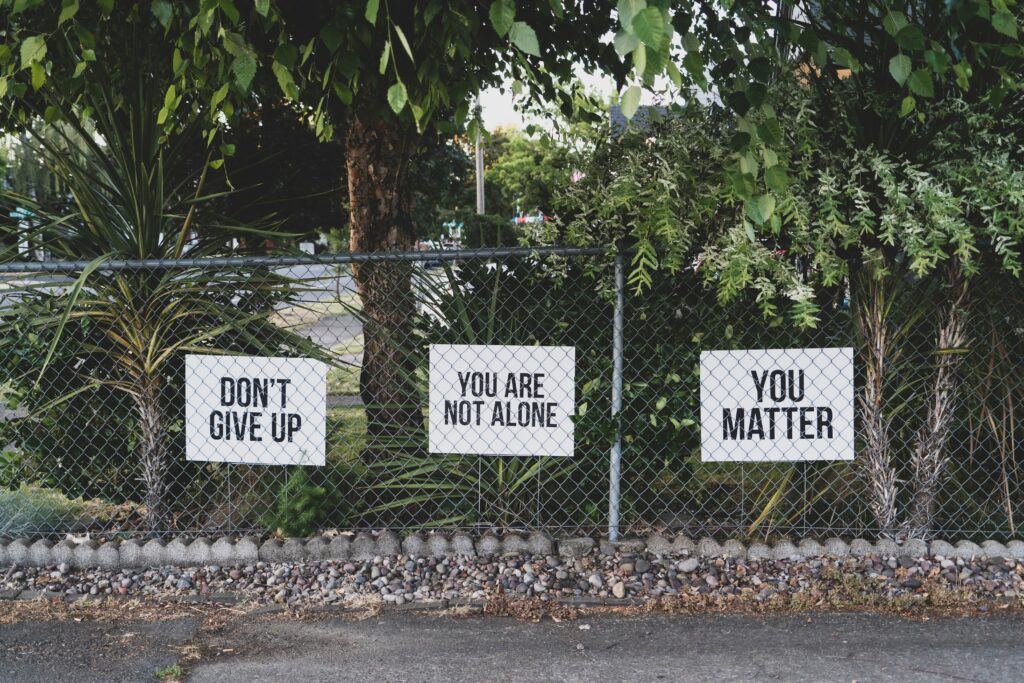Mental Health
“The Power of Emotional Validation: Benefits for Mental Health and Relationships”

Photo by Dan Meyers on Unsplash
Emotional validation refers to acknowledging and accepting someone’s emotions as valid and understandable.
It is a powerful tool that can benefit both the individual expressing their emotions and the person providing validation. Let’s explore some of the benefits of emotional validation.
- Builds Trust and Connection
When someone feels emotionally validated, they are more likely to trust and feel connected to the person providing validation. Validation sends the message that their feelings matter and that they are understood. This can create a sense of psychological safety, leading to stronger relationships and deeper connections.
- Reduces Stress and Anxiety
When we feel validated, our stress and anxiety levels decrease. This is because emotional validation helps us feel heard and understood, significantly relieving us when we struggle with difficult emotions. When we feel validated, we are better able to regulate our emotions and cope with stressors in a healthy way.
- Promotes Emotional Awareness and Acceptance
Emotional validation encourages us to acknowledge and accept our emotions, even if they are uncomfortable or difficult. This can be a crucial step in emotional regulation and growth. By validating our emotions, we can learn to recognize and accept them rather than trying to suppress or ignore them. This leads to greater emotional awareness and a more authentic sense of self.
- Encourages Communication and Problem Solving
Feeling validated makes us more likely to communicate openly and honestly with others. This can lead to more effective problem-solving and conflict resolution. By validating each other’s emotions, we can work together to find solutions that work for everyone rather than becoming defensive or argumentative.
- Improves Mental Health and Well-being
Emotional validation can have significant benefits for our mental health and well-being. By acknowledging and accepting our emotions, we can reduce the negative impact of stress and anxiety on our mental health. Additionally, by building connections with others through emotional validation, we can improve our social support networks and increase our resilience in difficult times.
Share this:
Mental Health vs Happiness: Understanding the Difference

Photo by Dan Meyers on Unsplash
The world seems to value happiness above all else, sometimes using it to measure mental health.
But mental health is not a measure of happiness.
While happiness can contribute to good mental health, it is not the sole measure of it.
Understanding the difference between mental health and happiness is crucial for our well-being.
What is Mental Health?
Mental health is a broad term that encompasses our emotional, psychological, and social well-being.
It affects how we think, feel, and act daily.
Good mental health is not just about the absence of mental illness but also about the ability to cope with life’s challenges.
Mental health is a complex and ongoing process that requires self-care and attention.
It is not a one-time achievement but a lifelong journey requiring effort and practice.
Mental health involves building resilience, managing stress, and maintaining healthy relationships.
What is Happiness?
Happiness, on the other hand, is a positive emotion that we feel when we experience pleasure, contentment, or joy.
It is a fleeting emotion that comes and goes, depending on our circumstances.
Happiness can contribute to good mental health, but it is not the sole measure of it.
The problem with pursuing happiness as the sole measure of well-being is that it can lead to unrealistic expectations and feelings of failure or inadequacy.
Life is not always happy, and it is unrealistic to expect it to be.
Instead, it is important to focus on building resilience and coping skills that will help us navigate the challenges and difficulties that come our way.
Mental Health vs Happiness
Mental health and happiness are often used interchangeably, but they are different.
Mental health is about overall well-being, whereas happiness is a positive emotion that comes and goes.
Good mental health involves building resilience and coping skills, while happiness is a byproduct of positive experiences.
It is essential to prioritize both mental health and happiness in our lives.
Pursuing happiness at the expense of our mental health can lead to burnout, stress, and even mental illness.
Conversely, neglecting our happiness can lead to feelings of boredom, frustration, and apathy.
The Importance of Self-Care
Self-care is an essential part of maintaining good mental health and happiness.
Self-care involves taking time to do things that we enjoy and nourish our souls.
It can be as simple as walking, practicing meditation, or spending time with loved ones.
Self-care also involves taking care of our physical health.
Exercise, healthy eating, and adequate sleep are all essential for good mental health and well-being.
Neglecting our physical health can lead to feelings of lethargy, apathy, and poor mental health.
The Importance of Seeking Help
If you are struggling with mental illness or poor mental health, it is important to seek help.
Mental illness is a real illness that requires treatment and support.
Seeking help is a sign of strength, not weakness.
Many resources are available for those struggling with mental illness or poor mental health.
These include therapy, support groups, and medication.
Finding a treatment plan that works for you and prioritizing your mental health and well-being is important.
The Importance of Mindfulness
Practicing mindfulness is another essential component of good mental health and happiness.
Mindfulness involves being present in the moment and paying attention to your thoughts and feelings without judgment.
It can help reduce stress, improve sleep, and increase feelings of well-being.
There are many ways to practice mindfulness, such as meditation, yoga, or taking a few deep breaths.
Incorporating mindfulness into your daily routine can significantly impact your mental health and happiness.
Share this:
Loneliness: A Growing Epidemic

Photo by Sasha Freemind on Unsplash
According to a 2018 University of California Los Angeles (UCLA) survey, loneliness is growing today. The survey found that more than half of the respondents reported feeling lonely, with a quarter saying they felt lonely frequently or almost all the time.
These findings are concerning because loneliness has been linked to numerous negative health outcomes, including depression, anxiety, poor sleep, and an increased risk of death. This is particularly troubling given that loneliness is a growing problem in our increasingly connected world, where people use technology to stay connected more than ever.
So, why are people feeling lonely despite the abundance of technology and social media platforms that are supposed to keep us connected? Several factors are at play, including the rise of individualism, a lack of social skills, and a lack of face-to-face interaction.
Individualism, or the emphasis on self-reliance and independence, has made it more difficult for people to form close relationships with others. People are also spending more time alone because they are working longer hours or spending more time on their devices. This lack of face-to-face interaction can lead to feelings of isolation and loneliness.
Additionally, many people are lacking social skills, which are essential for forming and maintaining meaningful relationships. People may struggle to initiate conversations, make friends, or maintain relationships, which can contribute to loneliness.
So, what can be done to address this growing issue of loneliness? There are many things that individuals can do to help reduce their feelings of loneliness and increase their social connections, including:
- Spending time with friends and family
- Joining clubs or organizations that align with their interests
- Volunteering for a cause they care about
- Practicing active listening and empathy when communicating with others
- Making an effort to reach out to others and initiate conversations
Organizations and communities can also help by creating opportunities for people to connect. This could include hosting events, creating community spaces, or offering support groups for people who are feeling lonely.

